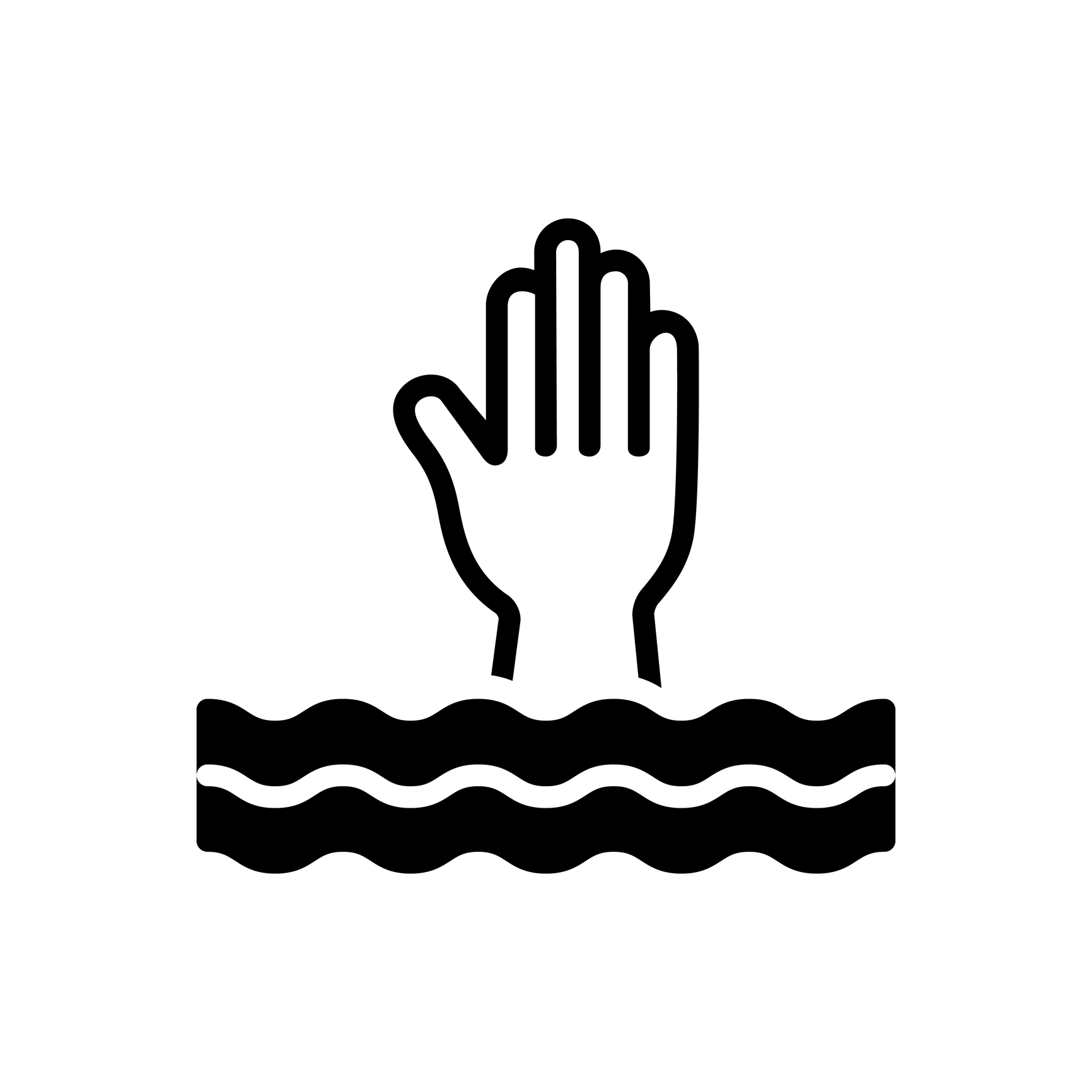
Overcoming Editing Overwhelm: Introduction
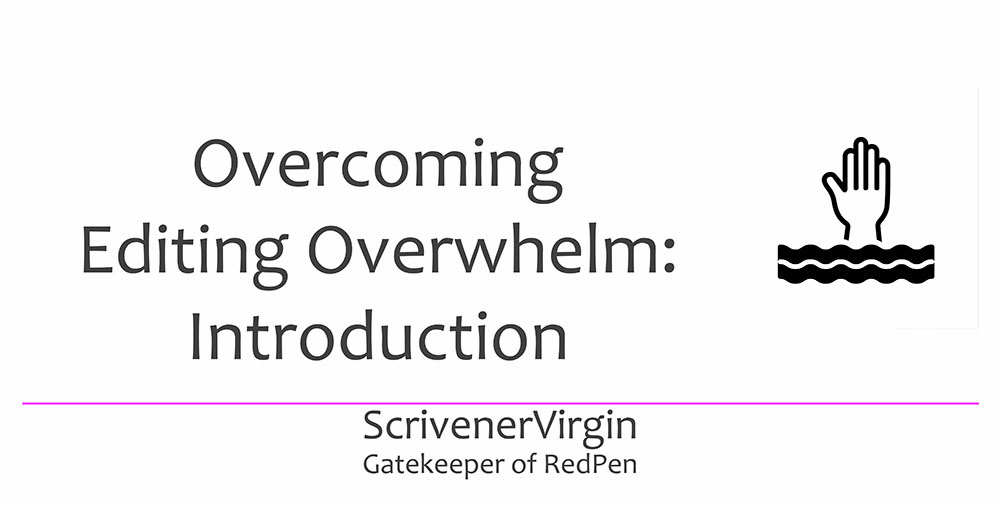
Editing is fun?
I try hard to make editing fun or, at least, to encourage fellow writers to approach editing (and life in general) with a good sense of humour.
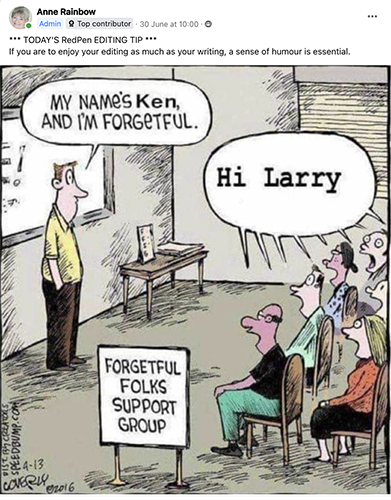 In my RedPen Editing Facebook group, I post a joke every Sunday with the suggestion ‘If you are to enjoy your editing as much as your writing, a sense of humour is essential’. Indeed, I strive to include images in both the RedPen Editing Facebook group and my ScrivenerVirgin Facebook page that will make you smile on other days of the week too.
In my RedPen Editing Facebook group, I post a joke every Sunday with the suggestion ‘If you are to enjoy your editing as much as your writing, a sense of humour is essential’. Indeed, I strive to include images in both the RedPen Editing Facebook group and my ScrivenerVirgin Facebook page that will make you smile on other days of the week too.
But, let’s be honest. Editing is not much fun at all!
After the initial euphoria of reaching (what we think of as) the end of the writing phase, giving ourselves a massive pat on the back, we wake to the enormity of the task ahead. So much to do … Where should we start?
So, as we remove our writing hat and replace it with our editor’s hat, that’s when panic can hit.
That’s when what I call EDITING OVERWHELM kicks in.
What is editing overwhelm?
 Editing overwhelm is a state of mind which can feel like you are drowning.
Editing overwhelm is a state of mind which can feel like you are drowning.
Drowning in words, in characters, in plot points, in comments and queries …
Your physical reaction to this stress might take the form of nausea, not being able to sleep, not being able to work on your manuscript for more than a few minutes before you feel you need to escape from it.
Editing becomes the enemy?
When does editing overwhelm hit?
Editing overwhelm can occur at any point in the process, not just when you think you’ve completed that first draft.
- During developmental editing, you might feel the big picture is too big. Or, maybe, you can see the beginning and the end, but there’s a black hole in the middle. Or, the character you thought of as your protagonist is being overshadowed by another.
- Once you’ve completed the first draft, during that first stage of editing – copy editing – you might be faced with a manuscript which is deemed to be far too long, or too short.
- There will then be second and third and fourth drafts. You might be trying to keeping track of the plot/subplots, feeling you’re losing track of what’s been fixed, what still needs attention …
- Eventually, you’ll feel ready to share your material and, while responding to feedback, grateful as you are to others for using their fresh eyes on your manuscript, you might be faced with continuity issues, having to rethink subplots, and unable to see the wood for the trees.
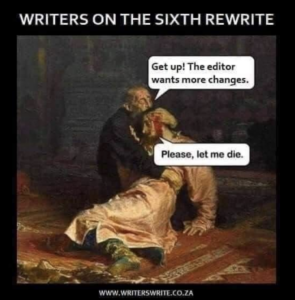 While line editing – the easiest stage? – you might find you develop word blindness, punctuation blindness, and begin to wonder why you ever wrote this book in the first place.
While line editing – the easiest stage? – you might find you develop word blindness, punctuation blindness, and begin to wonder why you ever wrote this book in the first place.- And then, yippee, you’ve found an agent and signed a publishing deal and, still, there’s more editing to do!
So, often, the list of things you need to think about, to fix, seems endless. And, almost at every stage, the writer/editor needs to summon enough energy and courage to see the task through to the end.
You need to overcome editing overwhelm! But, how?
How to overcome editing overwhelm?
The title of this series of posts is ‘Overcoming Editing Overwhelm’ – OEO for short! – and my plan is to share with you practical tools and strategies which you can apply if and when panic hits.
Of course, there are complications to take into account.
- Personal energy levels – physical, mental and emotional energy – and the risk of exhaustion or sinking into despair
- Cutting your cloth according to the time you have available
- Reactions to feedback
- Research demands and its potential to become a distraction
- Too much information – what used to be called information overload and is now termed infobesity!
There’s no one-size-fits-all but the range of tools is vast and I’m sure you’ll find something which works for you.
A strategy to overcome editing overwhelm
Overcoming editing overwhelm requires both skills and tools.
- Skills that will help you to avoid editing overwhelm in the first place – and prevent it cropping up mid-project – include: planning, organisation, time management, data management …!
- Tools – I’m suggesting two ebooks and one piece of software.
But first, the two books.
Two books to read
I recommend, if you’ve not read these already, that you do so as soon as possible.
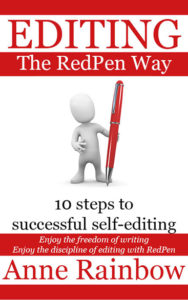 My Editing the Redpen Way: 10 steps to successful self editing offers a three-task strategy which can help to focus your mind and thus avoid the editing overwhelm before it becomes too overwhelming.
My Editing the Redpen Way: 10 steps to successful self editing offers a three-task strategy which can help to focus your mind and thus avoid the editing overwhelm before it becomes too overwhelming.
In the next post of this series, I’ll remind you of the 10 steps and focus particularly on steps 1-3 – all about preparing for editing.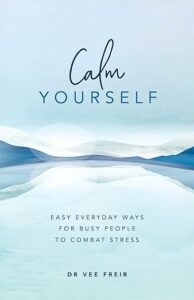 Then, in the next post after next, I’ll introduce Vee Freir’s Calm Yourself, in which Vee promises (and delivers) ‘e
Then, in the next post after next, I’ll introduce Vee Freir’s Calm Yourself, in which Vee promises (and delivers) ‘e
This will be a series not to miss so click here to subscribe to this blog,
a step-by-step exploration of how Scrivener can change how a writer writes.
Questions about Scrivener?
Need a helping hand with using Scrivener to overcome editing overwhelm?
Want a demo? Book a Simply Scrivener Special session at a time to suit you.
And, if you need a steer on self-editing,
check out my RedPen Editing courses.
Join RedPen Editing for a free 5-day editing taster course.
Did you notice?
No adverts.
An uninterrupted read.
To thank me for posting this blog
and helping you, you could always
buy me a virtual cup of coffee!
The ScrivenerVirgin blog is a journey of discovery
To subscribe to this blog, a step-by-step exploration
of how Scrivener can change how a writer writes, click here.
Also … check out the Scrivener Tips
on my ScrivenerVirgin Facebook page.
Not yet using Scrivener?
Click here to download your free trial.




No Comments